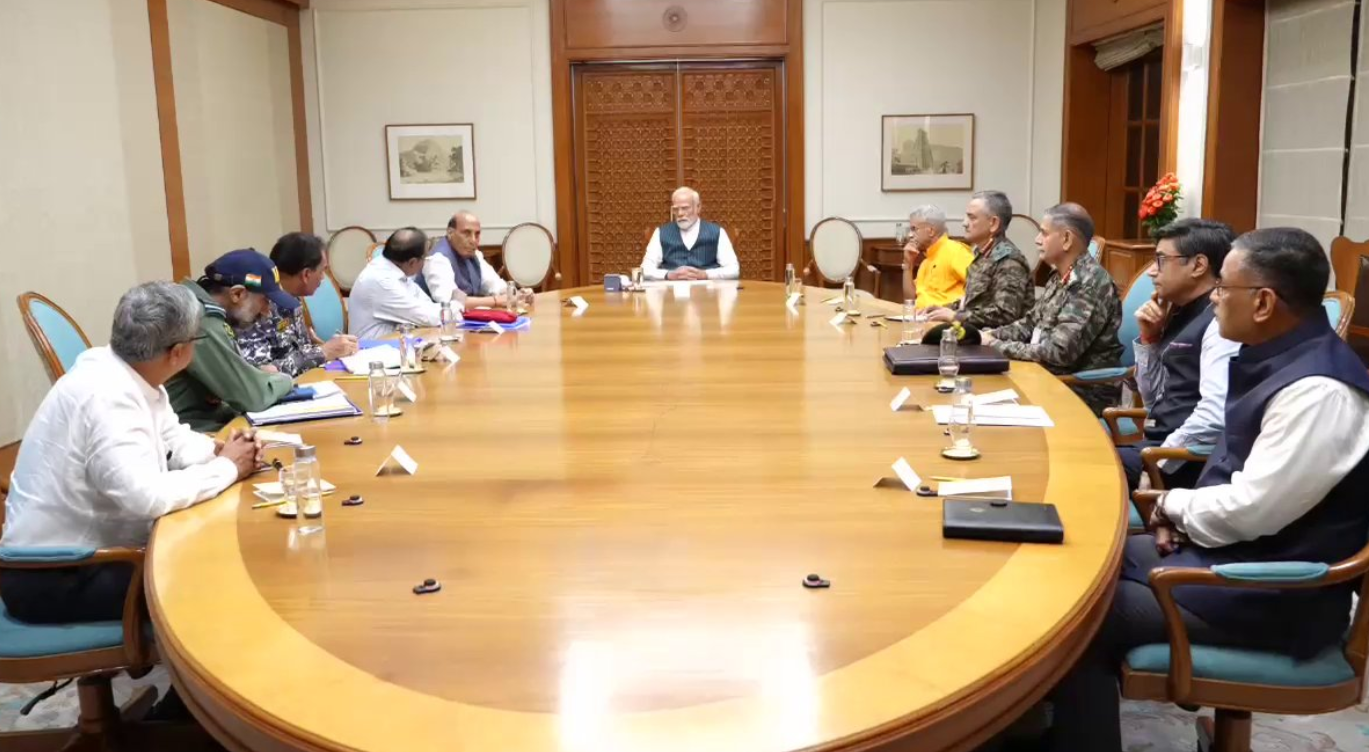
New Delhi, May 11, 2025 — In a significant development following a fragile ceasefire agreement between India and Pakistan, India’s top military leadership convened for a high-level meeting at Prime Minister Narendra Modi’s official residence at 7 Lok Kalyan Marg. The meeting, held under tight security, included the Chief of Defense Staff General Anul Jawan, Air Chief Marshal A.P. Singh, Army Chief General Upendra Dwivedi, and Indian Navy Chief Admiral Dineshapati. Defense Minister Dashnat Singh was also in attendance.
The emergency huddle came a day after India and Pakistan agreed to halt all military operations across land, air, and sea, effective Saturday at 5:00 PM local time. This ceasefire was initiated following outreach from Pakistan's military, which expressed willingness to pause hostilities amid mounting international scrutiny.
Ceasefire: A Conditional Pause, Not a Concession
Sources indicate that the ceasefire is being treated as a "conditional pause" by New Delhi, not a concession. Indian armed forces remain on high alert as uncertainty looms over Pakistan’s commitment to the agreement. India has reiterated that any future terror attack will be interpreted as an act of war, underscoring the gravity with which New Delhi views any potential violations.
International Spotlight and U.S. Involvement
The ceasefire development has garnered international attention. U.S. President Donald Trump, in a post on his social media platform Truth Social, welcomed the agreement, claiming that American diplomatic engagement helped facilitate the breakthrough. He also referenced the Kashmir issue in his statement, adding a layer of geopolitical complexity to the already sensitive situation.
DGMOs Set to Meet on May 12
As per the understanding, a follow-up meeting between the Directors General of Military Operations (DGMOs) of India and Pakistan is scheduled for May 12. The meeting aims to review ceasefire compliance and outline further steps toward de-escalation. While the ceasefire has brought a temporary calm, there is widespread skepticism about its longevity, particularly due to Pakistan's track record of violations.
Delays and Drone Activity Raise Concerns
Further raising alarm was the sighting of unidentified drones over Jammu & Kashmir and regions as far as Ambala in Haryana—just hours after the ceasefire came into effect. These developments have reinforced India’s cautious stance and contributed to postponements in official events. Notably, Defense Minister Dashnat Singh's scheduled virtual inauguration of a new BrahMos missile facility in Lucknow was delayed to noon due to his involvement in the high-level meeting.
Propaganda and Pakistan's Narrative
Adding to India’s concerns is Pakistan’s aggressive narrative management. Pakistani media and officials have been pushing a version of events that downplays Islamabad’s support for cross-border terrorism, instead portraying their military as key actors in achieving peace. Indian officials are reportedly strategizing on how to counter this narrative internationally, highlighting that Pakistan’s move came under diplomatic and strategic pressure.
Stay tuned to sensexnifty.com for real-time updates on this evolving story.




